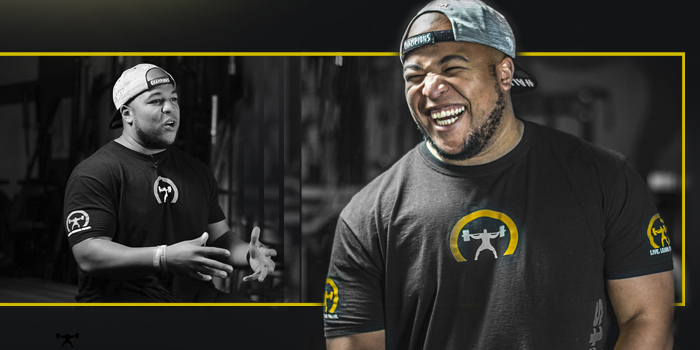
I was walking out of church with one of my assistants the other day, and a thought occurred to me: What better way to develop a relationship and bond with my staff than to spend time growing them in actual areas where they can improve or in venues they are receptive to growing? I know this sounds basic, but let me explain.
I hear a lot of people talk about leadership development and staff development, but I don’t see a lot of people developing leaders. Most of what I see is a George Washington model where people get on a pedestal and preach from the mountain top. They think they’re developing leadership, but truly they’re just listening to themselves speak. Trust me, I’ve been guilty of this for the last 27 years of my life.
RECENT: 45 Minutes or Your Money Back
Most internship or leadership development curriculums I’ve done have always been very well thought out, but there was one little detail that eluded me: humility. I can’t sit there and lie to myself, saying that I was humble in the spreading of my newfound enlightenment when I would talk openly for 20 or 30 minutes in the past. I truly was trying to better my audience with the things I spoke about, but it wasn’t leadership development; it was a follower tug-of-war.
When you sit and yammer at people, like most of us do in our leadership developments, we aren’t developing leaders… We’re gaining followers. And there is a very distinct difference between the two. I believe that while the intentions may be good, if you took a step back and inspected your leadership development, you would probably see that it’s lacking in humility/development of leadership qualities.

asmati © 123rf.com
The greatest leaders are not the ones who speak the most, but the ones who when they speak… The whole room listens. And with that, I also truly believe that meekness and humility are not weakness or fear. I believe the strongest people are the ones who can show humility and meekness. Why? Because they are the ones who rely on wisdom and quiet confidence.
I believe it takes a lot of confidence in oneself in order to develop leaders. I say this because in order to lead selflessly, you have to give up parts of yourself. That sounds a lot deeper than intended, but it’s very true. In meetings, I often sit back and say nothing. I let my staff speak. This is for a multitude of reasons, but the number one reason is I want them to be the ones who power the engine. I know what the car is supposed to look like; I bought all the pieces, but I want them to be the ones who garner the recognition for putting it together.
This also allows them to grow in their communication with administration and in group settings. What need is there for me to speak? I don’t need to voice every opinion I have, and I’ve spoken in front of every coach and most administrators in the athletic department. I want to grow my assistants and not steal opportunities for them to develop. I also like to take in all angles of the puzzle before I start trying to solve it.
If I go ahead and blurt out my opinion on everything, I never will gather all the information I need. Instead, I sit back and observe. From there, not only can I calculate my words, but I allow my staff time to work through the problem as well while allowing them to show off their higher-level thinking and problem-solving skills.
The last thing I want to leave you with is this, though, something I learned just a few weeks ago: Staff development isn’t a blanket sheet. I think far too often we try to develop in a classroom setting. I realized this after my assistant and I were walking out of church last Sunday.
In one church setting, we had not only bonded and heard about development from the highest of the highs, but we also got to spend quality time with other members of the community outside of the office.
RELATED: A Career Development Plan for GAs and Interns
The other day, another one of my assistants and I flew to Dallas, Texas, for a business deal. I observed as she skillfully navigated the meeting like a consummate professional. I threw in my comments here and there, but I wanted to watch a prizefighter fight. I knew she hadn’t done something like this before — talk business with a group of Texas businessmen — but I was completely confident in her abilities.
On most nights, my other assistant and I hang out on his back porch or in his living room and talk about our own faith and spirituality. We talk about the pursuit of excellence and the lifelong journey of self-realization and self-development.
In each and every one of these instances, I am taking time to develop my staff. None of them really know that I’m intentionally doing this (until they read this article), but it is my way of taking a nontraditional pathway to my staff development. And when I say nontraditional, I don’t mean to say I invented this aspect of leadership development… all I’m saying is it’s a new approach to me.
I’ve really enjoyed this approach and have gained much more insight from observing my assistants than I think they will ever realize. It’s also taught me more about my leadership style and myself in return. I have committed to leading in the true Biblical sense of the model. In that, though, there has been some doubt. But just when I start to have doubts, God shows me that I need to trust the process.
And that’s all it is at the end of the day: Waking up with a goal in mind and trusting the process. Every day, I wake up to give all I have to my athletes and my assistants because, at the end of the day, I am nothing without either of them.










